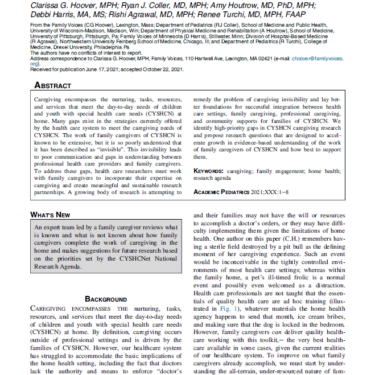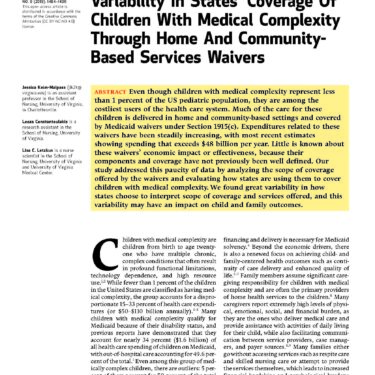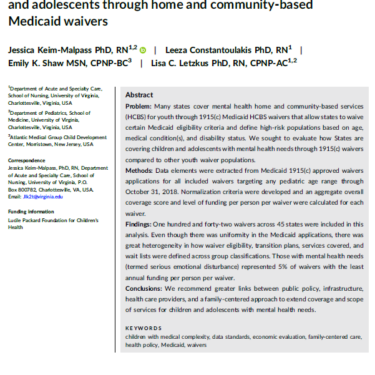Analysis of Home and Community-Based Care Medicaid Waiver Services Among Children with Medical Complexity
Organization: University of Virginia
Primary Contact: Jessica Keim-Malpass
Grant Amount: $119,177 for 18 months
Date Awarded:
Purpose
To describe and compare the key features of states’ Home and Community-Based Service Medicaid Waivers
Outcome
Children with medical complexity make up less than 1 percent of all US children, but account for a high percentage of pediatric health care costs. Much of the care for children with medical complexity is delivered in home- and community-based settings and is covered by Medicaid waivers, which allow states flexibility in the services and populations they cover. These waivers often increase state expenditures, but their effectiveness and variability has not been studied.
As part of this project, researchers conducted an analysis of the coverage offered by the waivers and an evaluation of how states are using the waivers to support children with medical complexity. Three articles were produced from this work. The first described development of a systematic and reproducible approach to evaluate these Medicaid waivers. The second, published in Health Affairs, was, to the authors’ knowledge, the first to document a systematic evaluation of Medicaid waivers targeting children with medical complexity. The authors found significant variability in how states choose to interpret scope of coverage and services offered. The third article investigates how waivers are being used to cover services for children and youth with mental health care needs.



